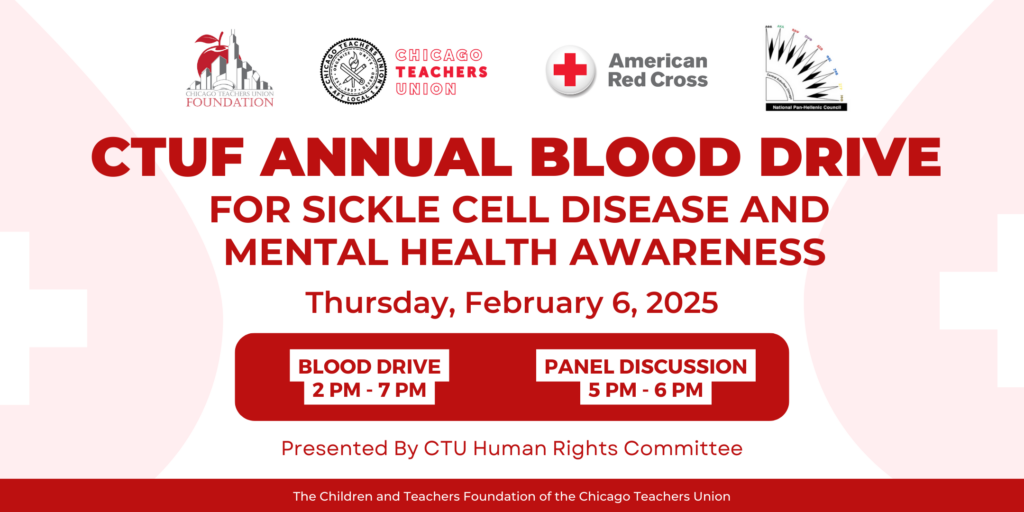American Red Cross Blood Drive
CTU Foundation Blood Drive and Panel Discussion
The American Red Cross Blood Drive
The American Red Cross hosts a safe, friendly, and healthy blood drive at the CTU Center. Sign up now to reserve your time slot to donate blood between 2 pm and 7 pm.
We need at least 40 donors for this event to fulfill our blood donation goals from last year. Please help us double our efforts for 2025!!!
Giving blood is safe, and simple and helps save lives. Each pint of blood that is donated may be helping as many as three people. The American Red Cross is the largest single provider of blood in the country. They provide blood to 3,000 hospitals across the country. About 38,000 people in the United States need blood each day. Those people count on volunteer donors to give them a chance at life. Many individuals who are Black have distinct markers on their red blood cells that make their donations ideal for helping patients with sickle cell disease. More than half of blood donors who are Black have blood that is free of C, E and K antigens – making them the best match for those with sickle cell disease.
Eligibility: If you are at least 17 years old, 16 years old with a signed Red Cross parental/guardian consent form where state permits, weigh at least 110 pounds and are in good health, you may be eligible to give blood. High school students and other donors 18 years old and younger must also meet other height and weight requirements.
On Thursday, February 6, between 2 and 7 pm, the CTU Human Rights Committee and CTU Foundation present their joint blood drive and panel discussion on sickle cell anemia and mental health issues.
Panel Discussion on the Science and Treatment of Sickle Cell Disease and its Intersection with Mental Health is from 5 to 6 pm.
All are invited, even if you are not donating blood for the blood drive!
The panelists will discuss what sickle cell disease is and why there’s a disparate impact on people of color. We are hosting this panel to open Black History Month to honor the contributions of Henrietta Lacks and to honor those who continue fighting against this disease today.
In 2021, The American Red Cross launched a national initiative to reach more blood donors who are Black to help patients with sickle cell disease and improve health outcomes. In the U.S., it is estimated that over 100,000 people have sickle cell disease and may require regular blood transfusions throughout their lifetime. Blood transfusions are essential in managing the very real pain and long-term health of those with sickle cell disease, and blood donations from individuals of the same race or similar ethnicity and blood type are the most effective way to help patients experiencing a sickle cell crisis. Since the majority of people with sickle cell are of African descent, blood donations from Black individuals are critical in helping those suffering from this disease.
Sponsored by The American Red Cross, Sickle Cell Disease Association of Illinois, National Pan-Hellenic Council of Central Suburban Chicago, Chicago Teachers Union, and the Chicago Teachers Union Foundation.
